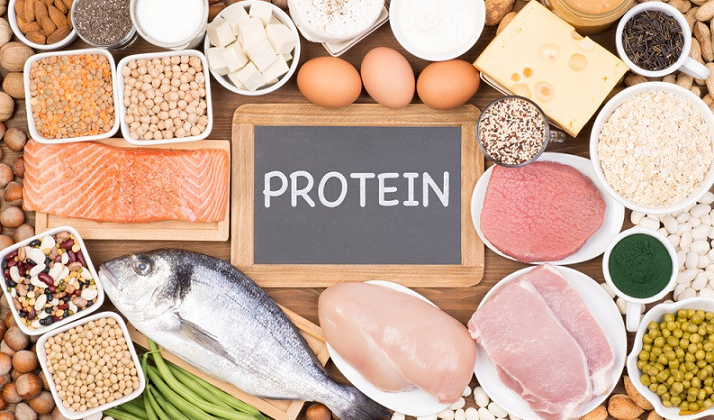92.7million Nigerians do not eat protein a day
A total 92.7 million Nigerians do not eat any protein in a day, the Nigerian Protein Deficiency Report 2020 has revealed. The result of a survey carried out in 2020 to assess protein deficiency in Nigeria claimed that 45 percent of the population, translating to almost half of the 206 million Nigerians, do not consume […]

A total 92.7 million Nigerians do not eat any protein in a day, the Nigerian Protein Deficiency Report 2020 has revealed.
The result of a survey carried out in 2020 to assess protein deficiency in Nigeria claimed that 45 percent of the population, translating to almost half of the 206 million Nigerians, do not consume protein daily as against recommended consumption.
- Zamfara Bandits: We banned mining activities in areas we operate
- ‘How hoodlum killed Police officer in Isiala Mbano attack’
Poor protein consumption is more prevalent in the North, East and among the lower class in the West, according to the study released by Mediacraft
The rate of non-daily protein consumption in the East is 49 percent, in the North, it is 45 percent while in the West, it is 36 percent.
Food rich in protein are fish, meat, egg, chicken, cheese, milk, among others.
The report indicated that Nigeria has a gap in its protein consumption, compared to other global economies.
The food and agriculture organization (FAO) recommended minimum per capita daily protein intake is 53.8g, while the daily intake is 64g globally, it is 45.4g in Nigeria.
“Nigeria is ranked below the bar in global food security index with a protein per capita – daily intake lower than the global standard. This is a major burden that requires continuous interventions to combat and reduce nutrition crisis in Nigeria,” the report stated.
Despite its availability, only 47 percent of the population prefers beans, 24 percent prefers soya beans, 11 percent prefers meat, 10 percent prefers fish and only 5 percent prefers eggs as their source of protein.
Meanwhile, about 81 percent of the population consume beans, 62 percent consume fish, 59 percent consume meat, 55 percent consume soya beans and 46 percent of the populace consume eggs.
In the survey, it was explained that 45 percent of the population believe that high cost of protein-rich food is responsible for their low protein intake, 39 percent insisted their low income has been responsible for it, 10 percent are of the believe that their little or low knowledge of protein benefits has been responsible for their low protein intake while 4 percent ascribed it to scarcity of protein-rich foods.
According to the head of home economics at the Adeniran Ogunsanya College Of Education, Lagos, Dr Beatrice Ogana-Ikujenyo, children should be given more eggs, meat, fish, soybeans as they need protein more than adults for their growth.
Inadequate protein intake among children has been linked to slow growth in children (stunting).
It was recommended that protein and soya beans should be consumed more for its growth and nutritional value as it helps in addressing issues concerning malnutrition, stunting, wasting and overweight.
In the report, it was emphasized that seven in 10 households believe they are having enough protein intake while their daily protein intake suggests otherwise and remains very low accounting for less than a third of daily food consumption.
This was ascribed to cost and household income levels as an average cost of protein is N80 per meal which translates to N240 per day.
“If the average Nigerian lives on a dollar, it means he spends about 65 percent of food on proteins alone,” according to the report.
“There is a need for more collective efforts to drive more awareness, affordability for protein daily intake among households. There is a need to channel communication to the essence of protein consumption and to push out clear information regarding required intake of protein for optimum wellbeing especially in the Northern and eastern part of the country,” the report stated.
